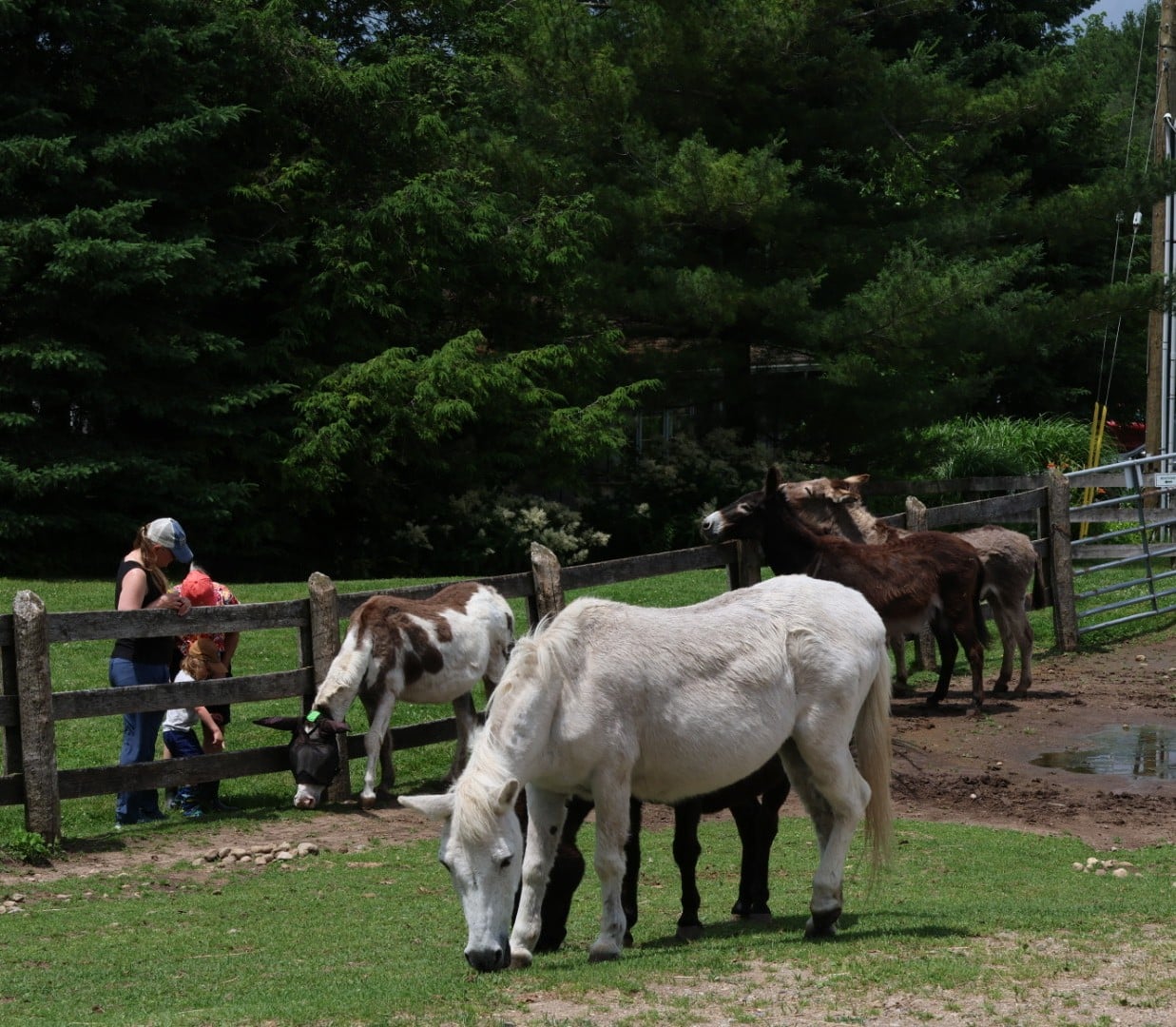
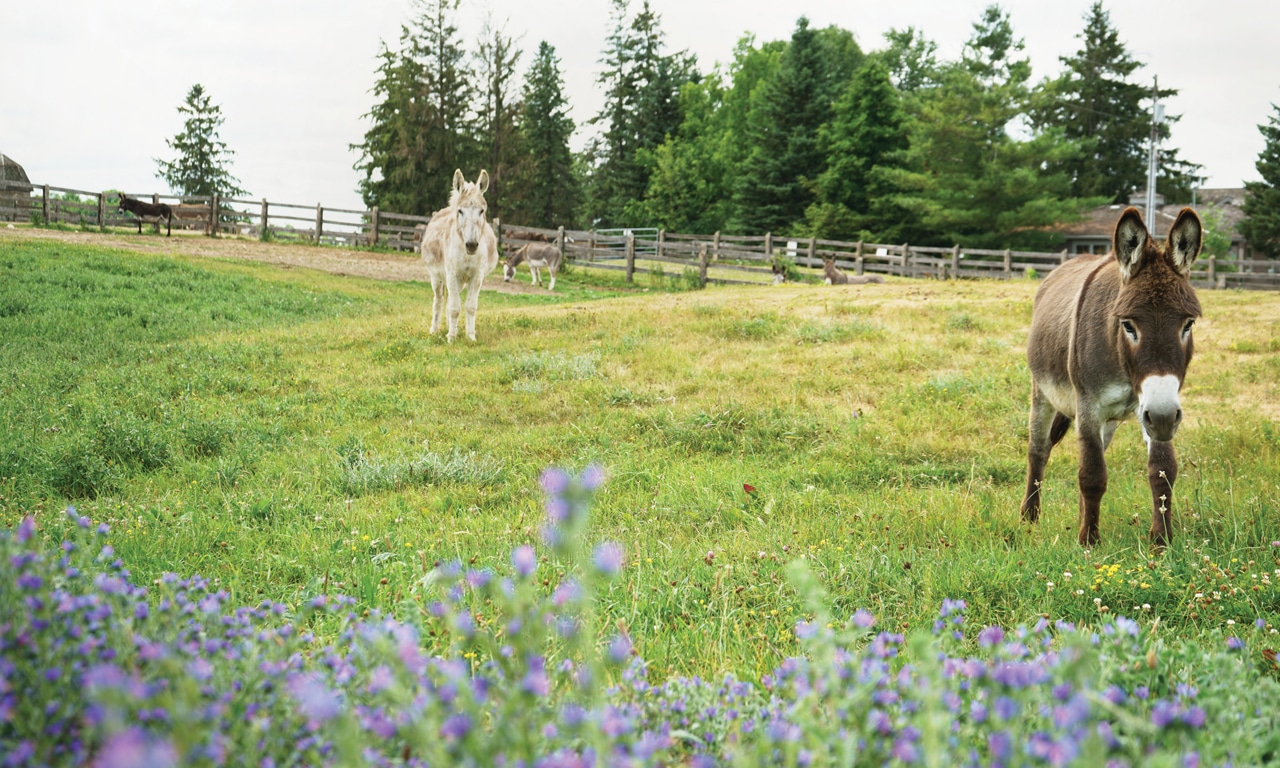
The Donkey Sanctuary of Canada is located on 200 acres of rural serenity, just south of the academic and artistic community of Guelph, Ontario. On our farm, more than 100 donkeys, mules, and hinnies live in sanctuary.
The Donkey Sanctuary of Canada is situated on the traditional lands of the Iroquois/ Haudenosaunee Peoples, specifically on the territory of the Neutral First Nation. We stand on land covered by the 1701 Nanfan Treaty between the Crown and the Haudenosaunee.
We value the contributions and resilience of the Indigenous peoples whose strong connection to Turtle Island is integral to its conservation. From their knowledge, practices, and relationship to nature, we are learning how best to be positive stewards of this land and its resources. We recognize the need to turn our commitments into ongoing actions, while acknowledging historical injustices, and working towards a future focused on respect, reciprocity, and a renewed connection with the natural world.
For thousands of years the land that became the home of the Donkey Sanctuary of Canada was entirely forested. By the 14th century, it was part of the hunting territory of the Neutral Nation, a member group of the Iroquois Confederacy. The area continued in its natural state under the stewardship of the indigenous peoples.
In the 18th century, Britain appropriated much of what is now Southern Ontario, declaring it Crown land. The land was sold to agents, who carved it into 100 acre lots, each purchased by private owners.
The Stewart family, who emigrated from Scotland in 1834, purchased the 100 acre parcel that presently constitutes half of the DSC’s property. The family constructed and lived in a log cabin on the site and built its bank barn using beams carved from the property’s hemlock forest. The land was cleared of trees and used for mixed crop and cattle farming. In the 1860s the Stewarts hired masons to construct the property’s stone house. All materials for the project were sourced from the land around the home. Over the subsequent 125+ years, the land was farmed, bought and sold by four successive families, until it was purchased in 1990 by Sandra and David Pady, Torontonians who sought a more rural way of life.
When Sandra Pady registered The Donkey Sanctuary of Canada as a charity in August 1992, there were several donkeys already rescued and living at the farm. As she puts it, “It seemed like we had just moved to the country and in the blink of an eye there were fourteen donkeys living at Walnut Ridge Farm.”
To read more of the DSC’s origin story, click here.
The DSC isn’t just a slice of pastoral tranquility, it is a farm with property that feeds and houses more than a hundred equines. Donkeys and mules are grazing animals, and to that end we have 24 paddocks (plus 7 smaller short term run paddocks) totalling 100 acres. Within those, we have areas that we use as needed to separate jennies (female donkeys), geldings (male donkeys), mules, newly arrived animals, and animals that are recovering from illness or medical procedures/treatment.
A portion of the hay required to feed the donkeys and mules is harvested from our hayfields and is stored in our hay storage facilities.
The property has two barns, one with an extensive treatment area with treatment stalls as well as a training centre. Our Donkey House is a haven in all seasons—in the summer it provides necessary shade and in the winter it’s a refuge from wet, cold, snow and wind.
The forests, marshes, ponds, and grasslands that make up the landscape of the DSC are home to a biologically diverse variety of wildlife (vertebrates and invertebrates).
Since 2019, the DSC Environmental Committee (EC) has worked to protect and manage these natural areas and their inhabitants.
From removing invasive species like buckthorn and phragmites to planting native trees and (more every year) pollinator gardens to monitoring and supporting wildlife and maintaining the health of our marshes and ponds, numerous environmental stewardship projects are ongoing at the sanctuary.
To learn more about our environmental and conservation work, we invite you to click through to this post.
Mission: To provide a lifelong home to donkeys, mules and hinnies who are unwanted, neglected or abused, or whose owners can no longer care for them; and to promote the responsible stewardship of all animals through humane education.
Vision: We envision a world in which the dignity and worth of all creatures are recognized and respected.
Our Charter
We grant to every animal admitted:
We work to uphold the five freedoms:
In 2017, the DSC was accorded GFAS accreditation by the Global Federation of Animal Sanctuaries (GFAS). This accreditation is significant because it indicates when an animal sanctuary meets comprehensive and rigorous standards for the care and management of animals. GFAS accreditation covers various aspects, such as:
Animal Welfare: Ensuring that the animals are provided with a high level of care, including proper nutrition, veterinary care, and appropriate living conditions.
Safety Protocols: Implementing safety measures for both the animals and the humans who interact with them.
Ethical Practices: Adhering to ethical standards in the treatment and management of the animals and humane end-of-life care.
Financial Stability: Demonstrating financial responsibility and sustainability to ensure long-term care for the animals.
Educational Outreach: Often, accredited sanctuaries engage in educational outreach to promote animal welfare and conservation.
Legal Compliance: Complying with all local, national, and international laws and regulations regarding wildlife and animal care.
Transparent Operations: Maintaining transparency in operations, including open communication with the public and stakeholders.
GFAS accreditation is considered a mark of excellence in animal sanctuary management. It assures the public, donors, and other stakeholders that the sanctuary operates with high standards of care and ethics. This accreditation is voluntary, and sanctuaries undergo a thorough assessment and regular reviews to maintain their accredited status.
In October 2023, the DSC was honoured to receive the GFAS Outstanding Sanctuary Award.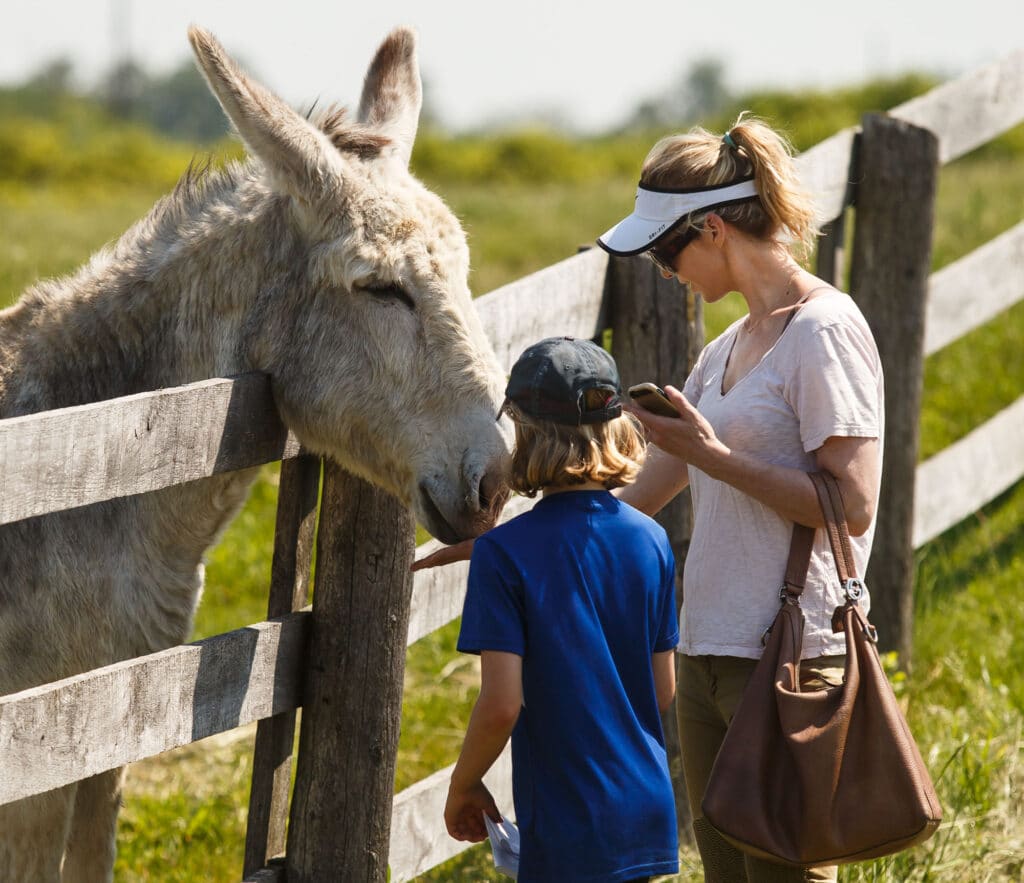
The Donkey Sanctuary of Canada is a not-for-profit licensed charity. Our mission is to provide a lifelong home to donkeys, mules and hinnies that are unwanted, neglected or abused and we promote the responsible stewardship of all animals through humane education. We envision a world in which the dignity and worth of all creatures are recognized and respected.

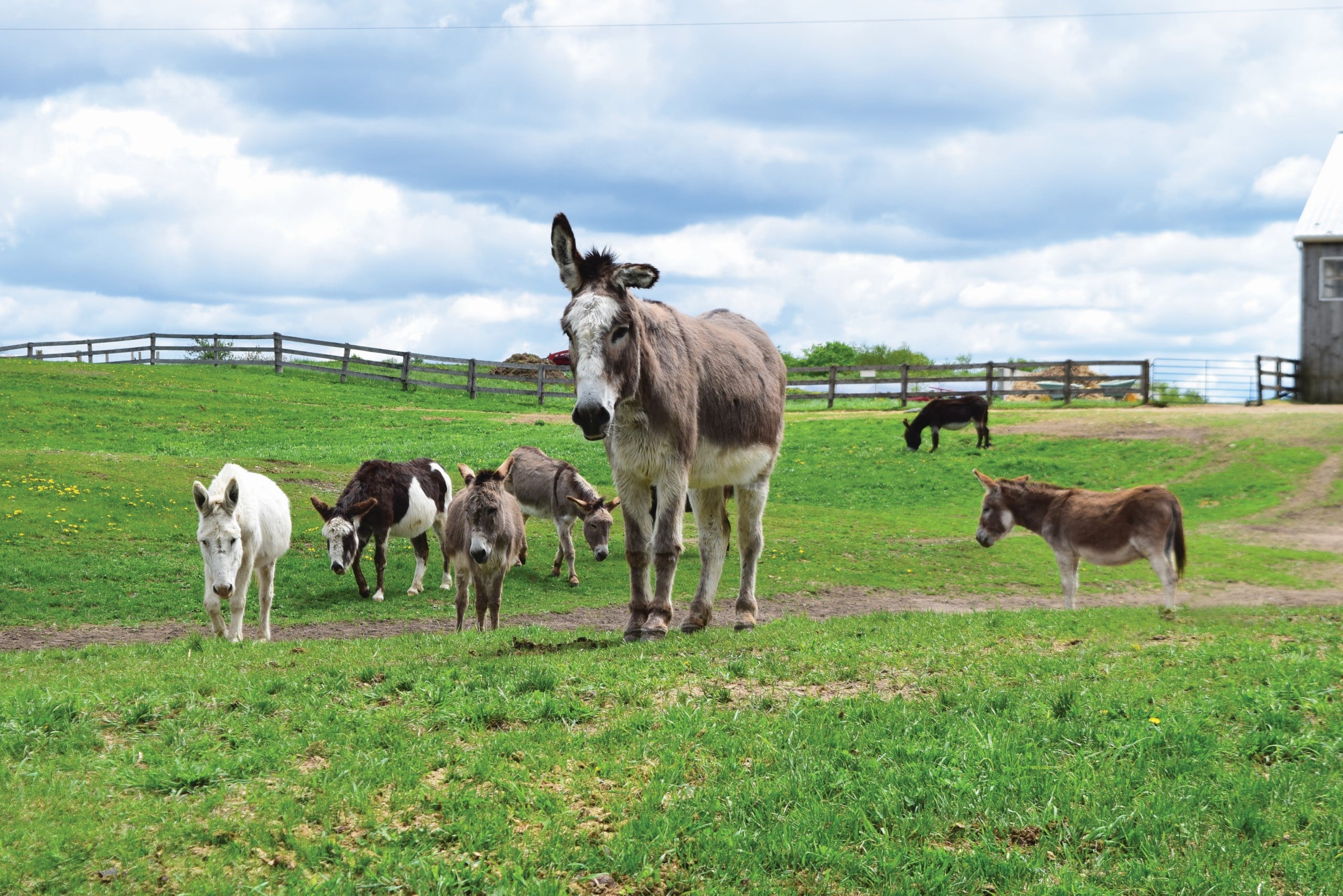
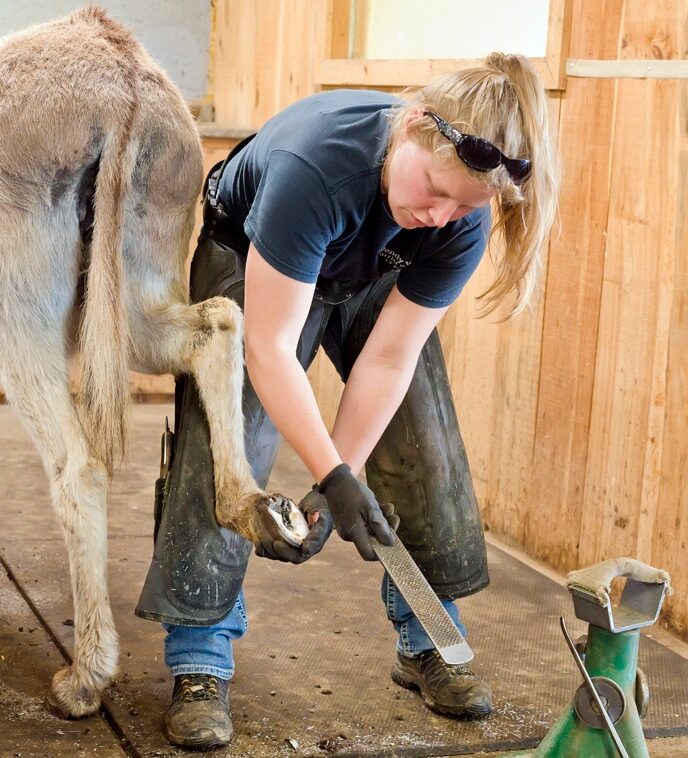
The Donkey Sanctuary of Canada is proud to offer our FREE onsite professional farriers’ clinic.
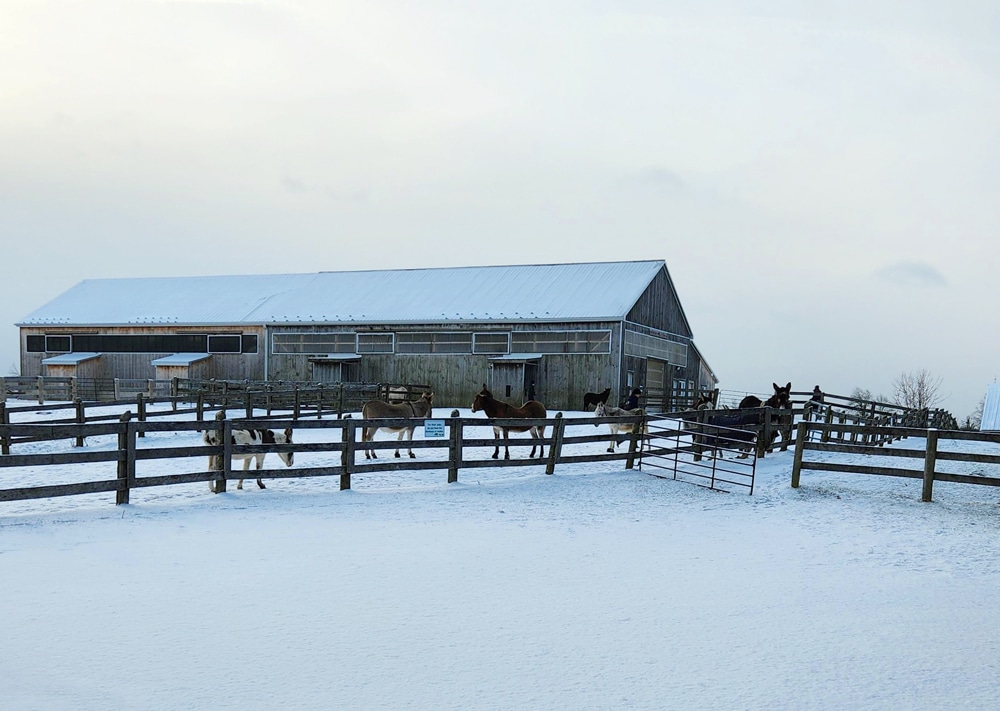
As the temperatures drop and the seasons change, the DSC will be closed to visitors for the winter months.
Volunteering at the Donkey Sanctuary of Canada is a rewarding experience. Plus, donkeys!
Click to view or download the pdfs.